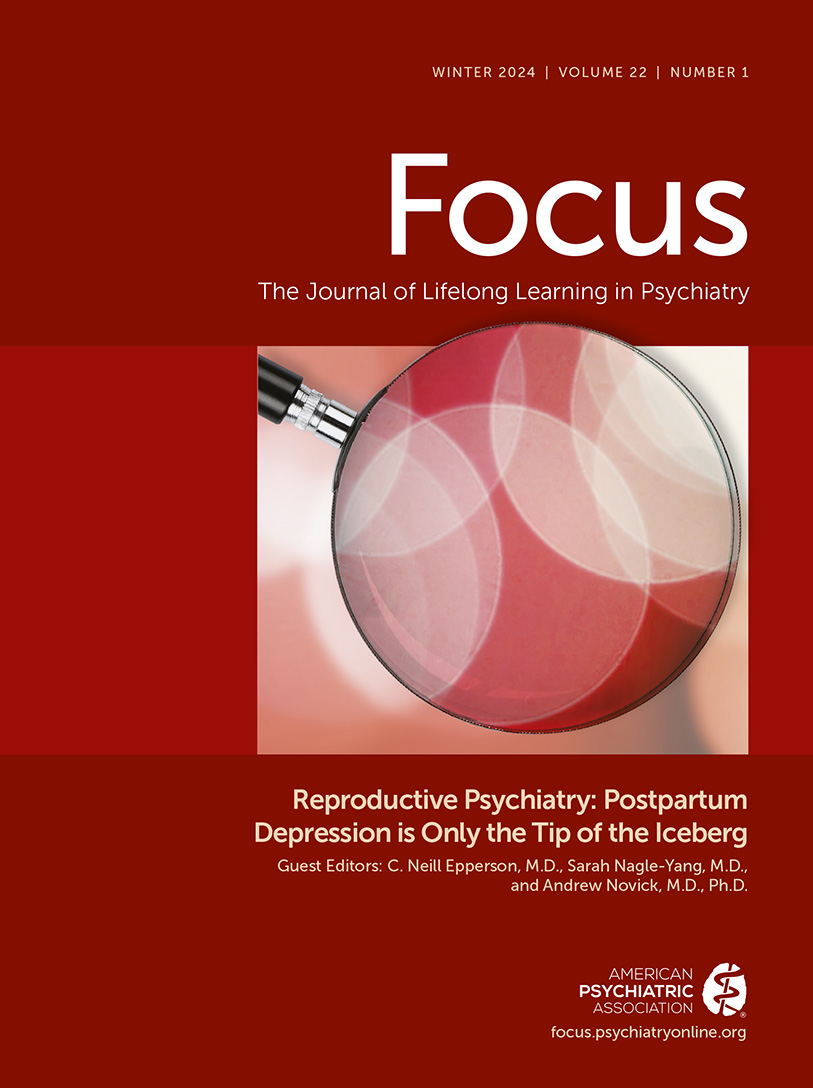Striking the Balance: Bipolar Disorder in the Perinatal Period
Abstract
The authors reviewed the literature, published between 2018 and 2023, on treating bipolar disorder in the perinatal period in order to summarize current treatment perspectives. Mood episodes occur during pregnancy and there are high rates of both initial onset and recurrence in the postpartum period. Bipolar disorder itself is associated with higher risks of adverse pregnancy outcomes, including gestational hypertension, hemorrhage, cesarean delivery, and small for gestational age infants. A general principle of perinatal treatment includes maintaining psychiatric stability of the pregnant person while reducing medication exposure risk to the fetus. A variety of factors can compromise psychiatric stability, including rapid discontinuation of stabilizing medications, decreased efficacy due to physiologic changes of pregnancy, and exacerbation of underlying psychiatric illness. Psychosocial interventions include optimizing sleep, increasing support, and reducing stress. The American College of Obstetricians and Gynecologists recommends against discontinuing or withholding medications solely due to pregnancy or lactation status. Individualized treatment involves a discussion of the risks of undertreated bipolar disorder weighed against the risks of individual medication choice based on available evidence regarding congenital malformations, adverse neonatal and obstetrical events, and neurodevelopmental outcomes. Valproate is not a first-line treatment due to higher risks. Data are lacking on safety for many newer medications. The authors review current safety data regarding lithium, lamotrigine, and antipsychotics, which are the most commonly used treatments for managing bipolar disorder in the perinatal period. Due to physiologic changes during pregnancy, frequent therapeutic drug monitoring and dose adjustments are required.
Access content
To read the fulltext, please use one of the options below to sign in or purchase access.- Personal login
- Institutional Login
- Sign in via OpenAthens
- Register for access
-
Please login/register if you wish to pair your device and check access availability.
Not a subscriber?
PsychiatryOnline subscription options offer access to the DSM-5 library, books, journals, CME, and patient resources. This all-in-one virtual library provides psychiatrists and mental health professionals with key resources for diagnosis, treatment, research, and professional development.
Need more help? PsychiatryOnline Customer Service may be reached by emailing [email protected] or by calling 800-368-5777 (in the U.S.) or 703-907-7322 (outside the U.S.).



